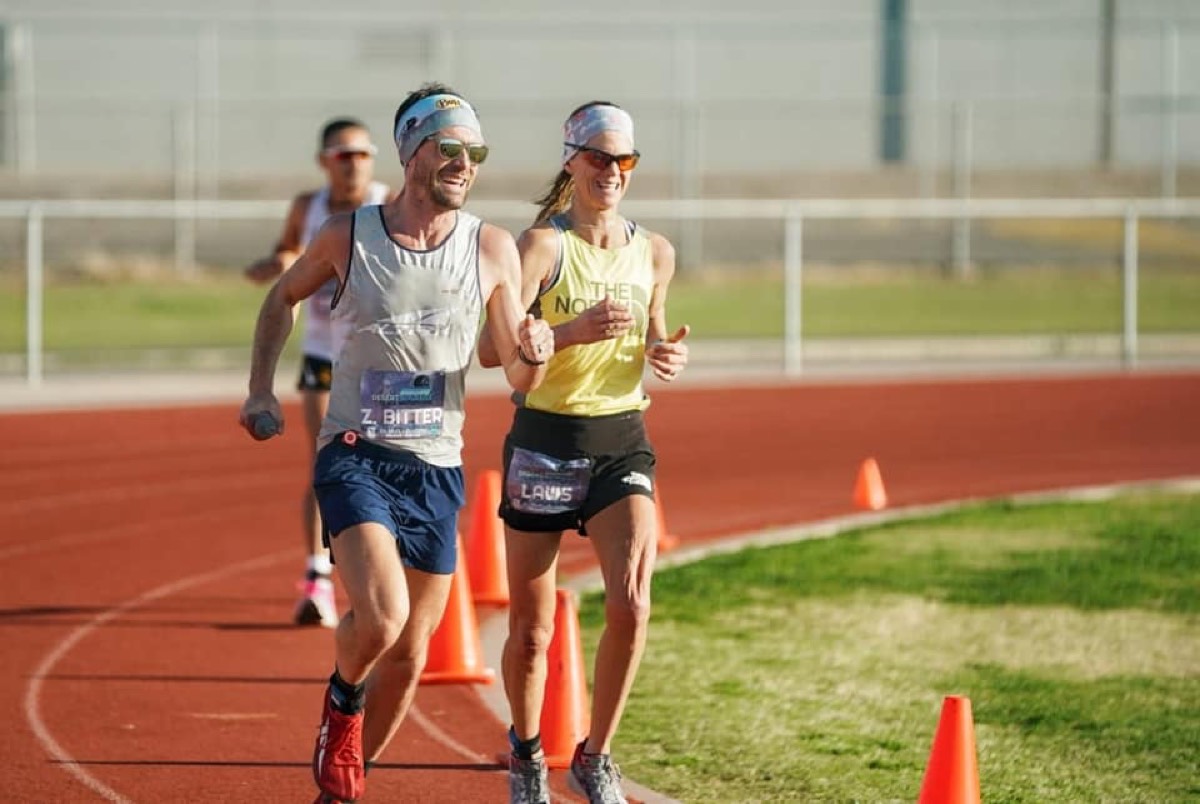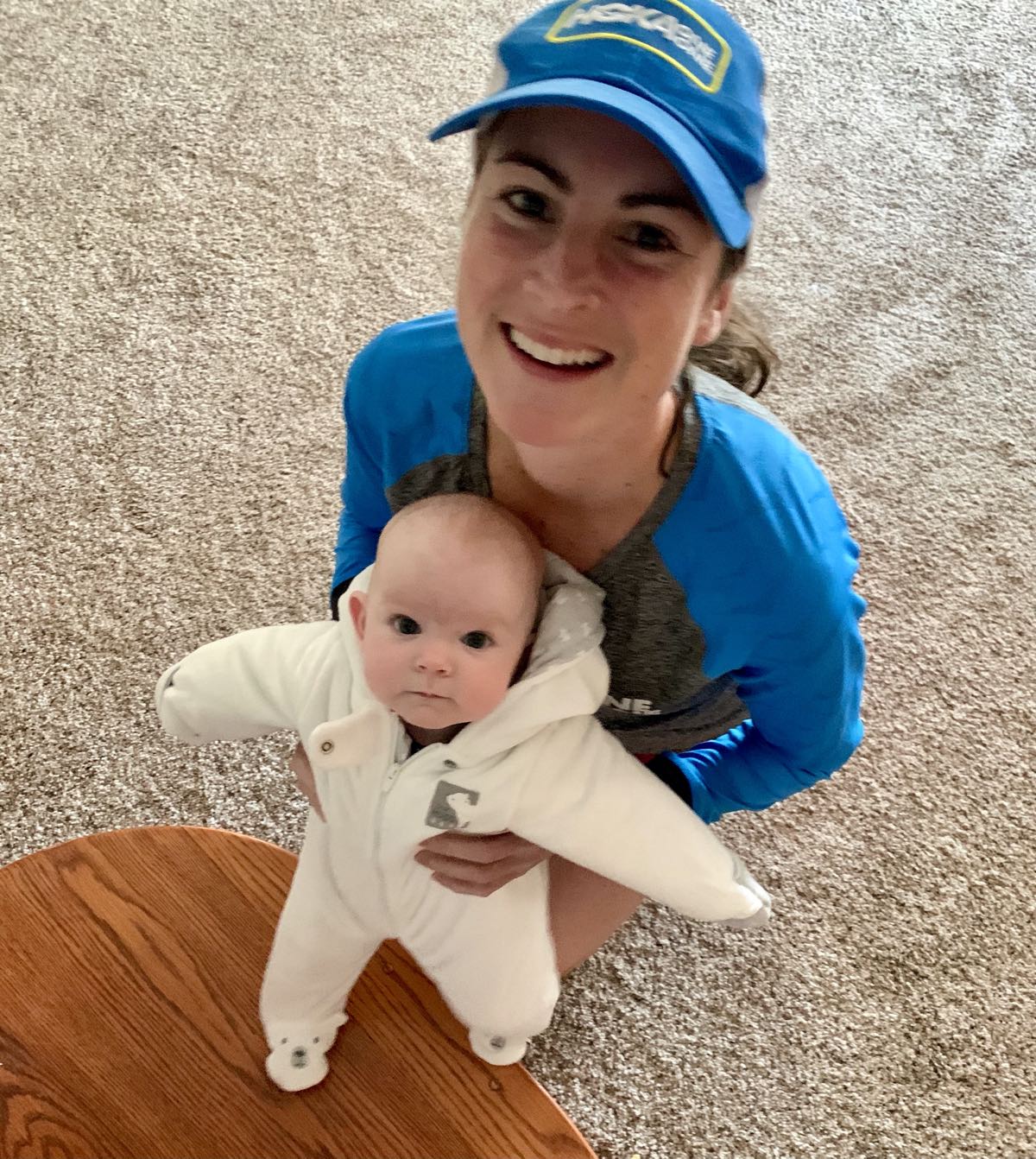As I write this on the week of December 6, it is race week. I am competing at the Desert Solstice 24-Hour and 100-Mile Track Invitational in Phoenix, Arizona, and I am excited about the prospect of competing and seeing friends. I also love the 24-hour event and am pleased to return to this racing format.
It is conceptually simple: You just run as far as you can over a 24-hour period. This satisfies a natural curiosity. I used to wonder how far I could run in a day. I do not have to wonder about this anymore. I can just run for 24 hours to figure it out. I am free to wonder about other things.
In any case, I am excited for this event and for the opportunity to be refined by the distance and by my competition. I also have no idea where my fitness is, at least compared to my personal history with this event — an event that used to be my specialty before I took an eight-year sabbatical to focus on shorter races.
My training and life are very different from eight years ago. I still love running, and I aim to compete well. But running occupies a smaller, quieter place in my life than it did back then. I think about it less often, and I probably cover fewer miles overall. Moreover, this is a good thing, even if there is a performance cost to these shifts.
If running were to occupy the same place in my life as it did in earlier seasons of life (before I had a husband and a daughter, for example), this would suggest a misordering of my loves.
Ordo Amoris
Ordo amoris is order of loves. This is a concept introduced by Augustine. The idea is that there is a priority proper to the things we love. For Augustine, a good life consists of loving what we ought, to the extent that we ought, in the ways that we ought.
He describes how we should not “have a greater love for what should be loved less, or an equal love for things that should be loved less or more, or a lesser or greater love for things that should be loved equally (1).”
Augustine also states that to get the priority of our loves correct is nothing short of “a brief and true definition of virtue (2).” Good actions follow from well-ordered loves.

A storm clears above Honister Pass at sunset in the Lake District of England. Photo: iRunFar/Bryon Powell
Why This Is a Helpful Concept
It has been a long time since I have seriously read Augustine, but this is an image I often lean on when I consider the shifting responsibilities and relationships in my life, such as becoming a mom while trying to be an academic and a high-level athlete.
My reality is not that I have ceased to love running, in the way that I once imagined I would in adulthood. It is not that I have set running aside as an act of duty, either. What has happened is that my order of loves has shifted, and this impacts how I participate in the sport.
I still love running, and there is nothing wrong with that. I don’t feel chastised for continuing to love it, at the very least because it is where my talents lie, and a rich life involves “not letting one’s capacities lie fallow (3).” But running is less important to me, in this season of life, because I have higher loves.
Augustine’s ordo amoris is a helpful image because it is descriptively true of how many of us make decisions on a regular basis: We often act from affections, rather than from a force of will. There are exceptions to this, of course. For example, I pay my taxes from duty, not love.
But it is tiring to have to continually choose the right things. It is easier to love the right things and let our loves dictate our actions than to act from duty. It is also clarifying to think of good actions as relevant to what we love — that our affections dictate our thoughts and behaviors.
We all love a lot of things — people, work, sports, hobbies, ideas, and material objects. The puzzle is getting these loves into the right order, and adjusting as life situations shift.
One interesting note is that Augustine does not describe a simple priority relationship among different loves. Instead, higher loves transform lower loves. For Augustine (a theologian), the love of God was the most important love. But it was not partitioned off from other loves. It was supposed to inform the way a person loved his neighbors, for example.
This makes sense to me — that my higher loves are not isolable from lower ones. It seems right that being a mom might inform the way I comport myself as an athlete — that I can’t just put my sneakers on and cease to be Lucy’s mom.
It seems right that I can’t do anything, really, without relevance to my higher commitments. So, what does that mean for my future as a competitive runner? I guess we will see.
Final Pre-Race Thoughts
When I started competing in this sport, I was a 20-year-old college student, with vast amounts of free time, a limited number of commitments, and all of the energy that comes with being 20. Now I am a wife, a toddler mom, and a philosophy instructor, and I have a research agenda I am really invested in. My set of loves is different than when I started competing in this sport, and this changes the way I occupy the sport.
This weekend, I am competing at a race that, realistically, I am not prepared for — at least in the way I was eight years ago when this was my specialty event. But I am acting from loves, trying to keep them all in the right order, and seeing what kinds of performances I can produce in this new phase of life.
Final Post-Race Thoughts
[Editor’s Note: Sabrina competed at Desert Solstice and ran for just over nine hours to complete 68 miles or 274 laps.]
My day ended earlier than I hoped at Desert Solstice, but the miles I did were the highlight of my fall. I’m trending upward in strength, and that is exciting. If there is one takeaway for me, it is this: I still love ultrarunning, however absurd this sport is.
I still have big goals. My higher commitment is to my family, rather than to sport, but for now, I want to keep trying and see whether I can continue to improve, in a way that rightly prioritizes the people I love.
Call for Comments
- How do you order the different things in your life that you love, running included?
- Have you found that as your life changes, some things take precedence over others?
References
- Augustine (1996). De Doctrina Christiana, Ed. by J.E. Rotelle, Transl. by E. Hill. Hyde Park: New City Press, I.28, 118.
- Augustine (2003). De Civitate Dei, Ed. by G.R. Evans, Transl. by H. Bettenson. London: Penguin Books, 637.
- Kristján Kristjánsson (2020). Flourishing as the Aim of Education: An Aristotelian View. Routledge, 5.


